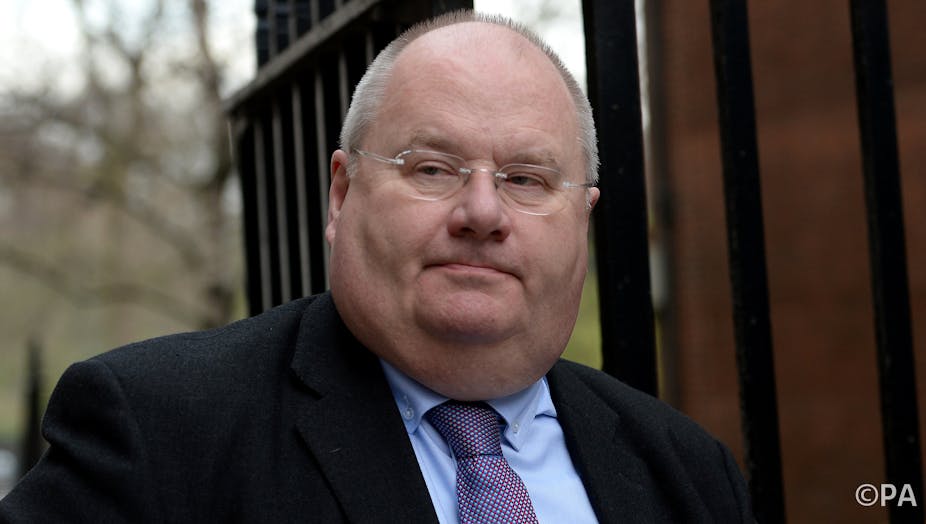With a forced smile and through gritted teeth, Tower Hamlets’ elected mayor, Lutfur Rahman, has announced himself willing to accept – and even “welcome” – the intervention package set out for his borough by Eric Pickles, secretary of state for communities and local government.
The mayor had kept the minister waiting until almost literally the 23rd hour of the 14th day of a two-week deadline set for his response to the package. He had made two fruitless and costly appeals for judicial review, but in the end was left with little choice. He has no intention of resigning, but must now watch as three appointed commissioners take over until March 2017 some of his most valued and important responsibilities, following what Pickles described to the Commons as a “fundamental breakdown of governance”.
Pickles vowed to send in the troops after reading the critical findings of a “Best Value” Inspection report he had commissioned from PricewaterhouseCoopers. His chief concerns were the payment of grants; transfer of property to third parties; process and practices for entering into contracts; and spending and decisions on publicity. PwC found the council to be particularly failing in its duties regarding the first two areas.
The minister could afford to offer the mayor a conciliatory fortnight to respond. He knew, after all, that the fate of Tower Hamlets had effectively been sealed in the summer. Rahman applied to the High Court for a judicial review in an attempt to stop Pickles from investigating allegations of fraud and mismanagement in the borough. The court dismissed the application as “hopeless” in the first line of its judgement, and last week’s second application received almost equally cursory treatment.
By one of life’s pleasing coincidences, that first judgement coincided almost precisely with PwC being fined $25 million (roughly Tower Hamlets’ annual transport budget) for watering down a report on dodgy dealings at a Japanese bank. The consultancy has also been fined for lax practices in protecting client assets and failing to comply with “some of the most elementary auditing standards and procedures”.
When the PwC report was published, Rahman and his council immediately responded by saying it contained “no evidence of criminality or fraud”.
This was an at least questionable claim, for the report does refer to “evidence of possible fraudulent payments” to third-sector organisations and the matter is now in the hands of the police.
The denial also leaves Rahman a hostage to fortune. He might be able to challenge the suggestion that fraudulent activity was happening in council business but many – and in fact probably most – of the fraud accusations levelled at him relate to elections, and particularly his own 2014 mayoral re-election.
Rahman won by a margin of just 4% against Labour candidate John Biggs, and investigations of both the conduct and result of that election are still very much ongoing. There has been detailed scrutiny of ballot papers and an election fraud trial is to take place in the High Court, probably in January.
Rahman knows as well as anyone that fraud is not what Best Value is primarily about. This policy was introduced by New Labour in 1999 and for councils it means putting in place arrangements to secure continuous improvement in the performance their functions.
To demonstrate failure to comply, therefore, it isn’t necessary to demonstrate that money has been spent fraudulently, merely that satisfactory arrangements haven’t been in place. It’s doubtless a relief that PwC didn’t find glaring instances of financial fraud, but that wasn’t its primary task and there was plenty of nasty stuff it did uncover.
It sounded bad, then, when Rahman’s initial reaction seemed to be to downplay the failings that were uncovered by the report as easily remediable “regrettable flaws”. Best Value is a statutory duty, and these matters are serious.
The really unfortunate thing about this case is the message it sends about local democracy. A Conservative minister, for whom most Tower Hamlets residents would never dream of voting, commissions a report from a bunch of highly paid professionals, which finds that locally elected politicians have had the temerity to question and even override the advice of more highly paid, unelected officials, probably living outside the borough. And finally, a third set of highly paid unelected officials is sent in to take over. At least some of those voters must surely be wondering why they bothered.

